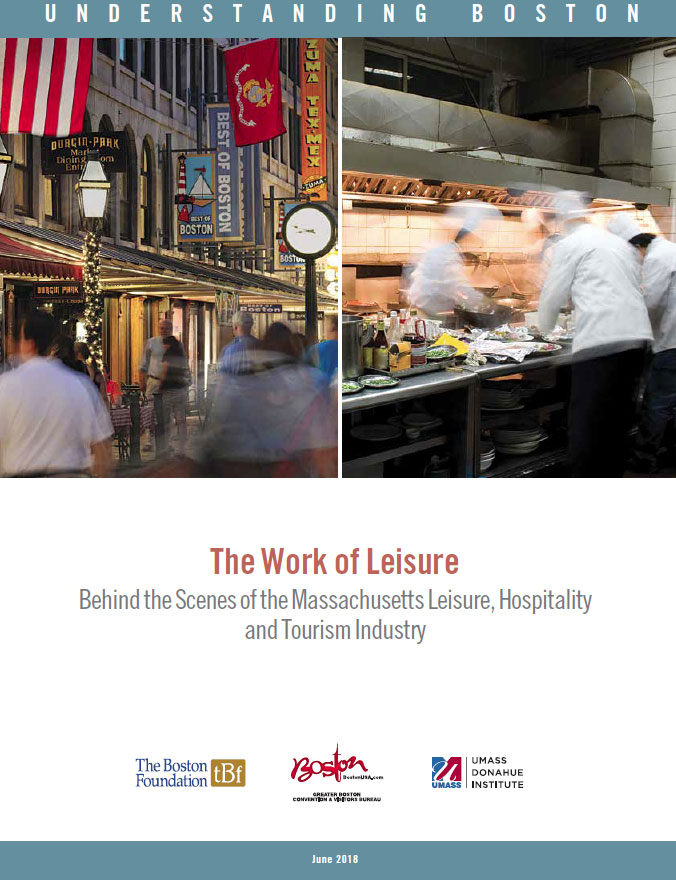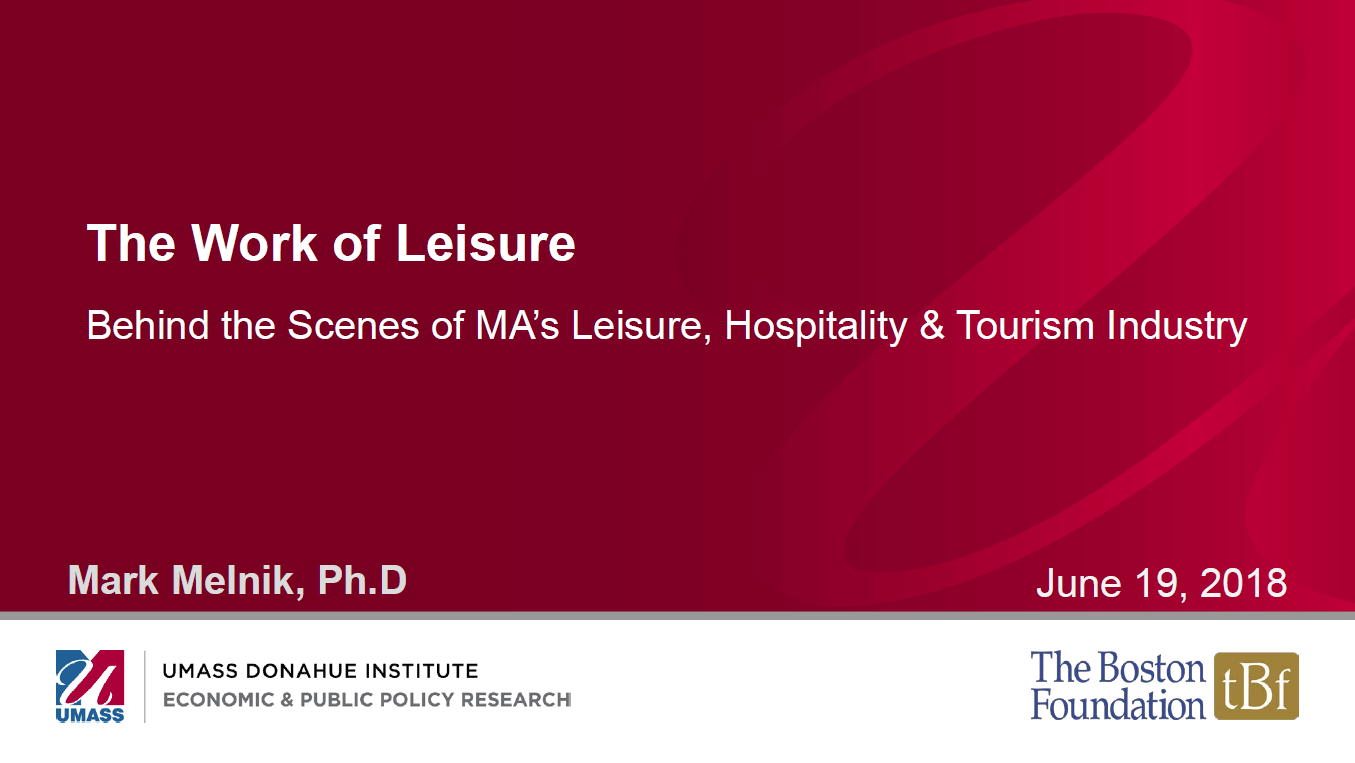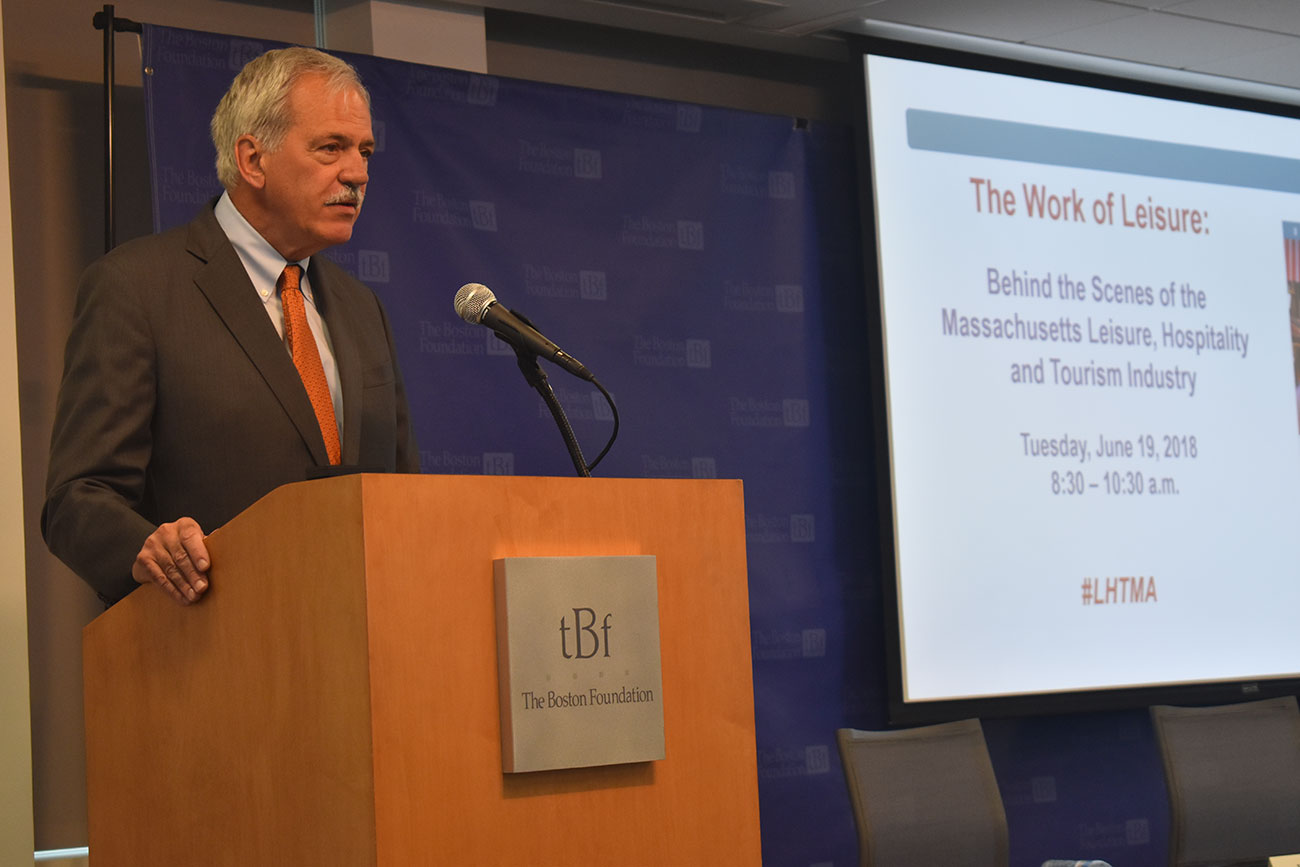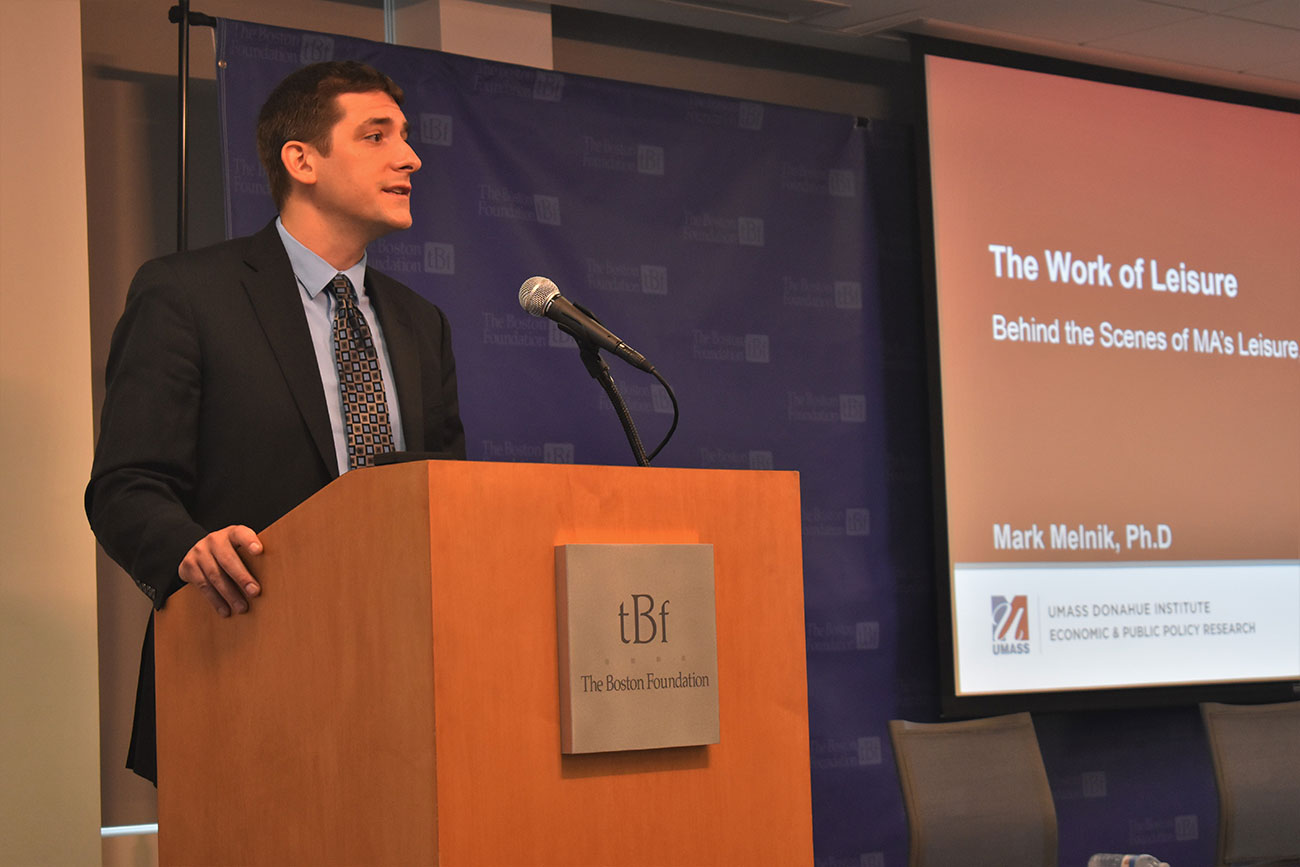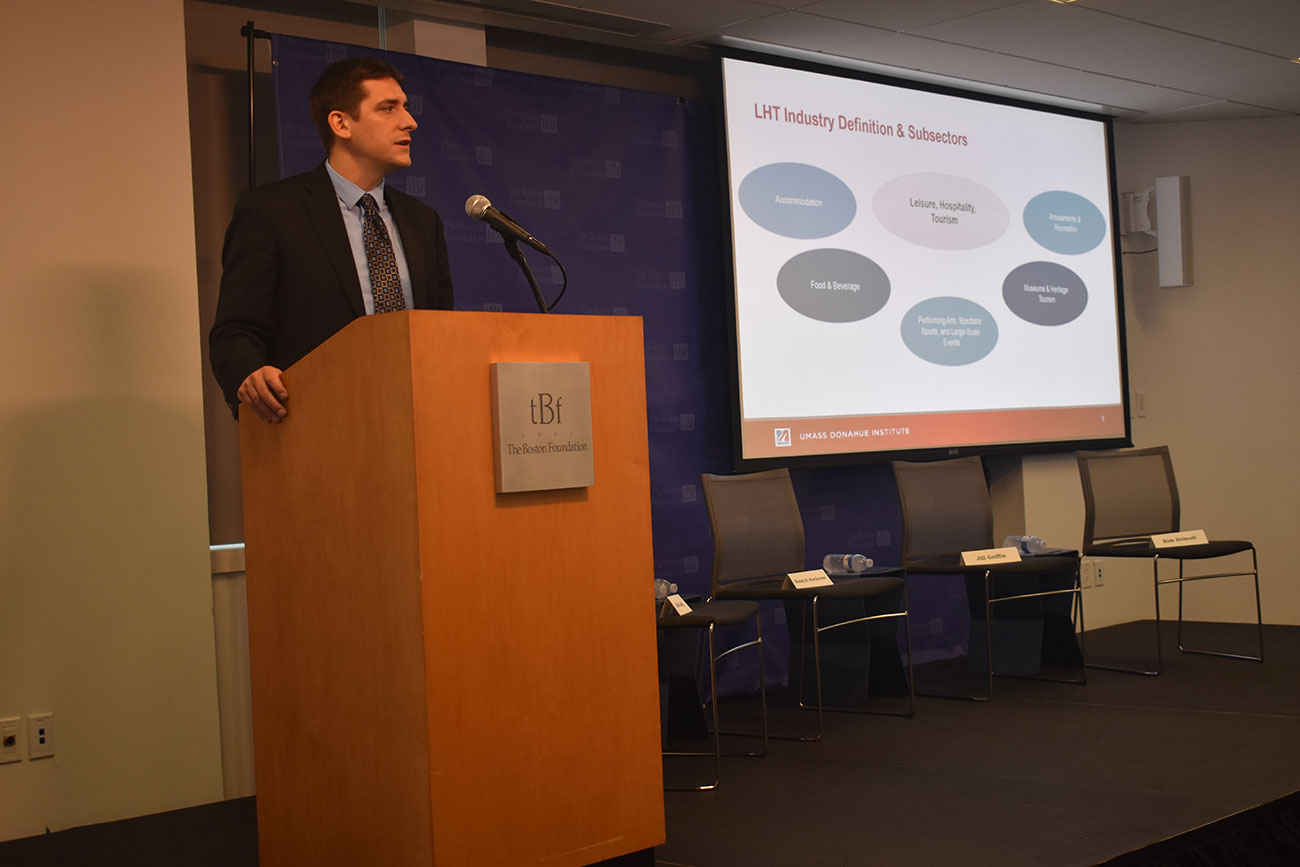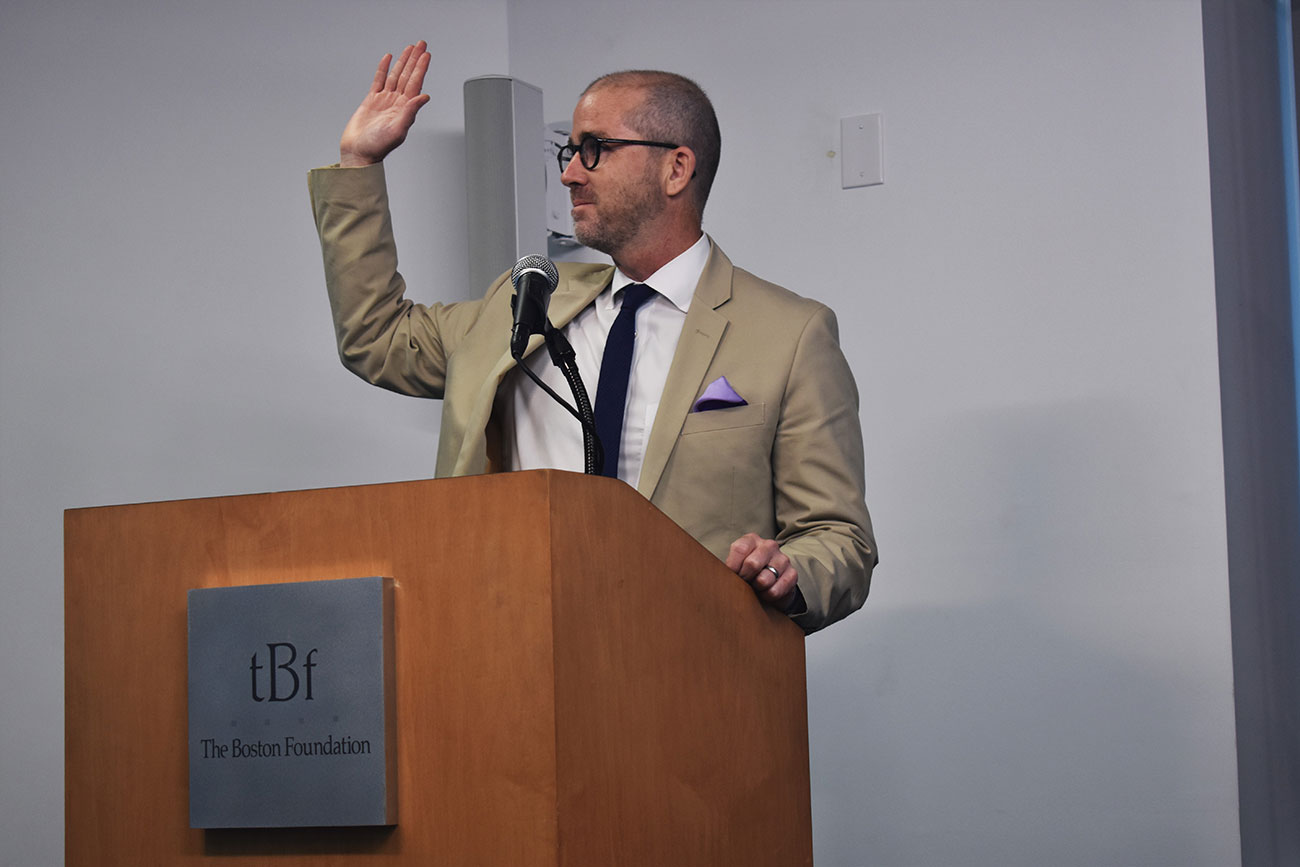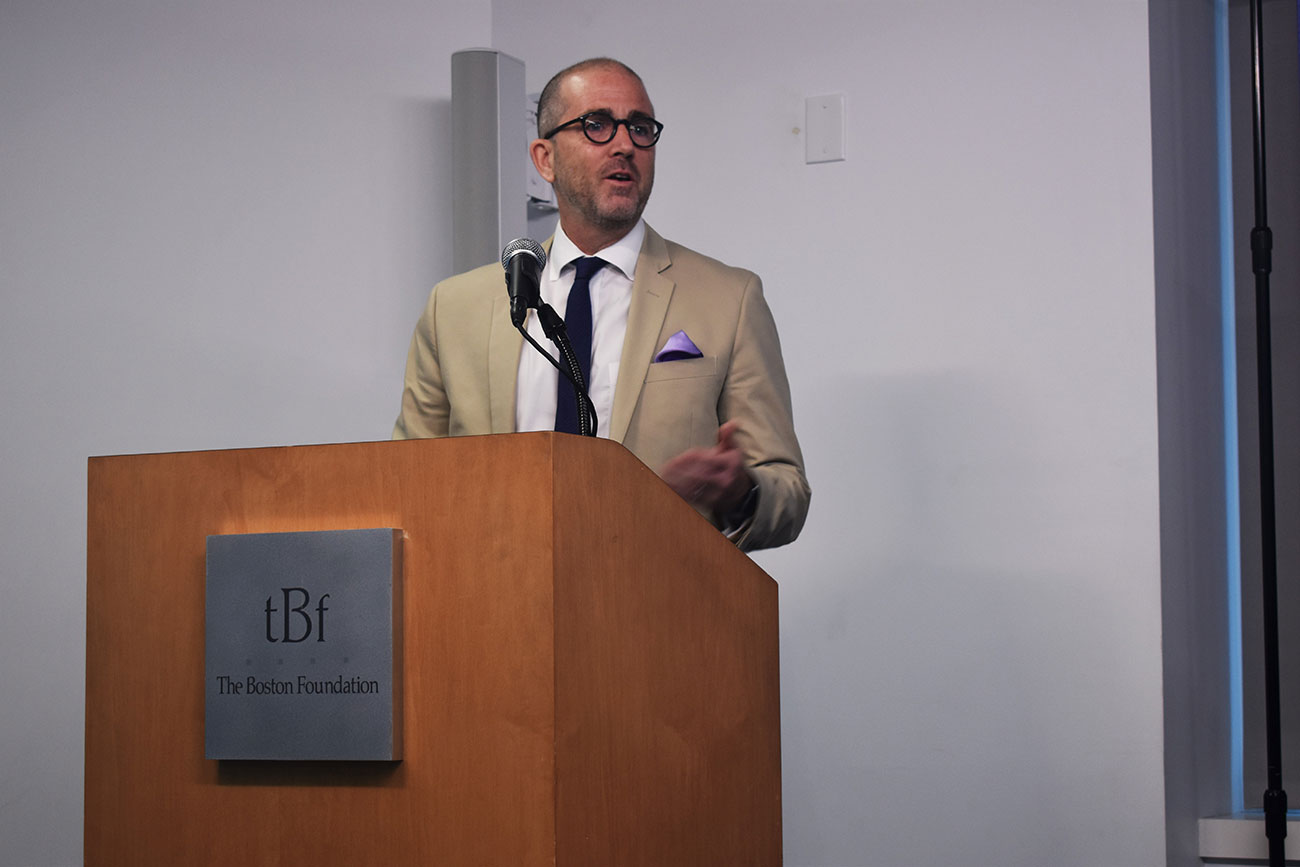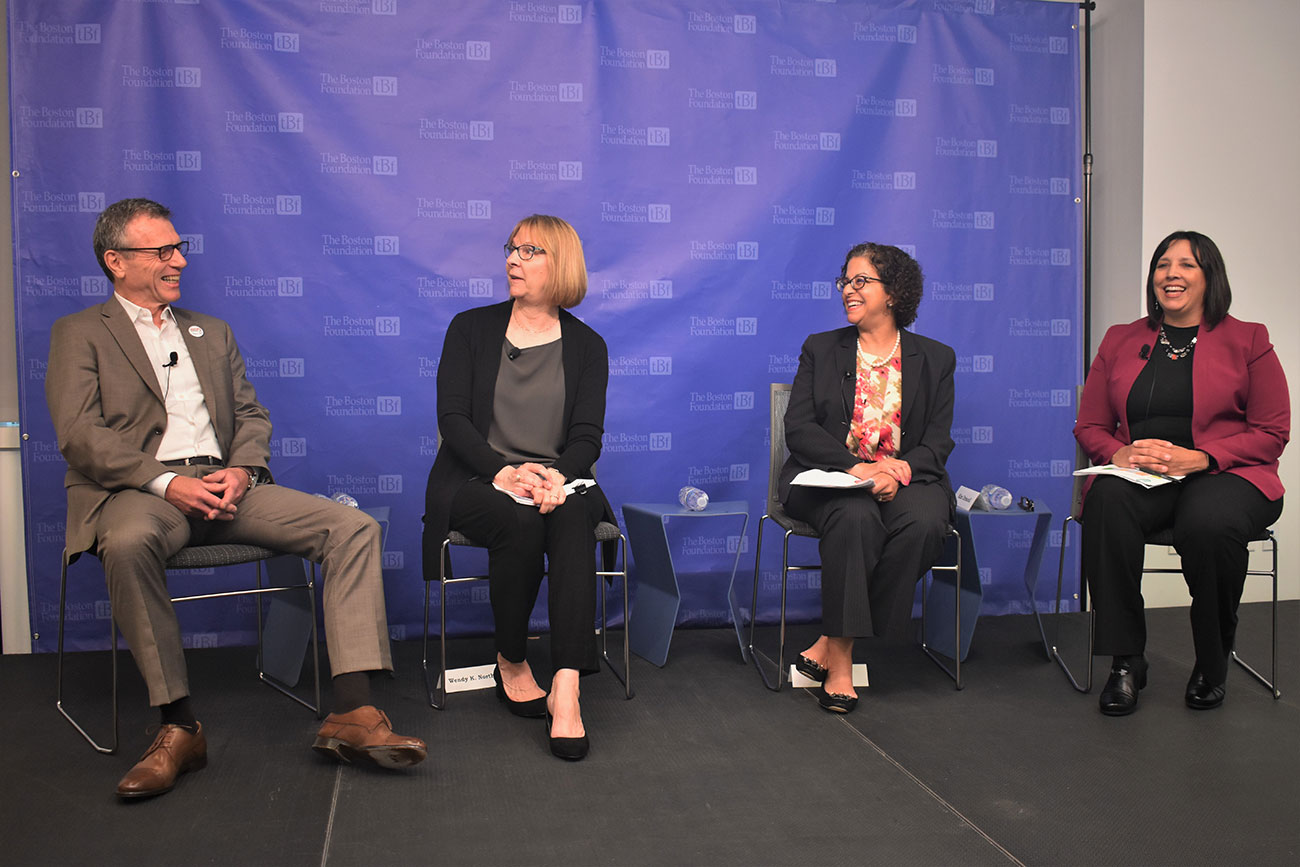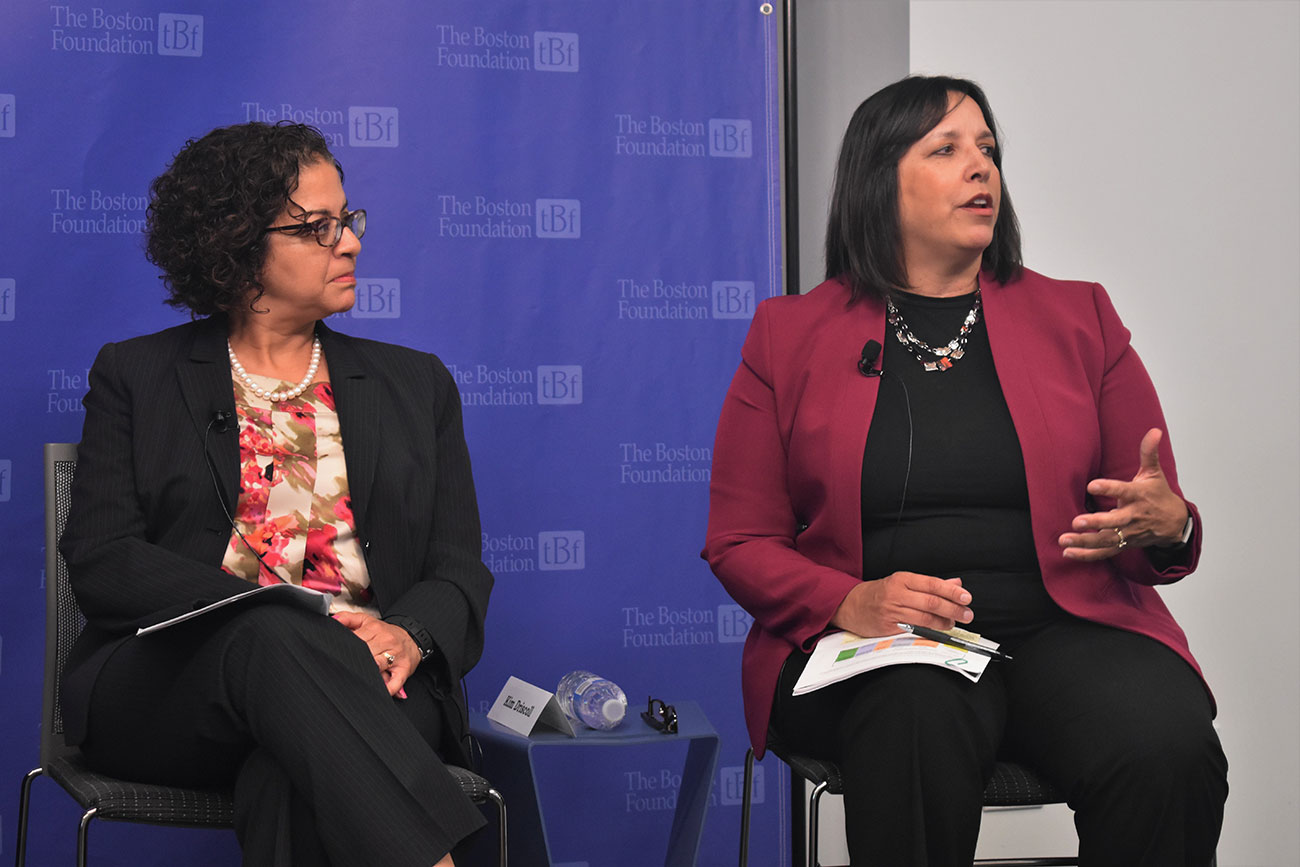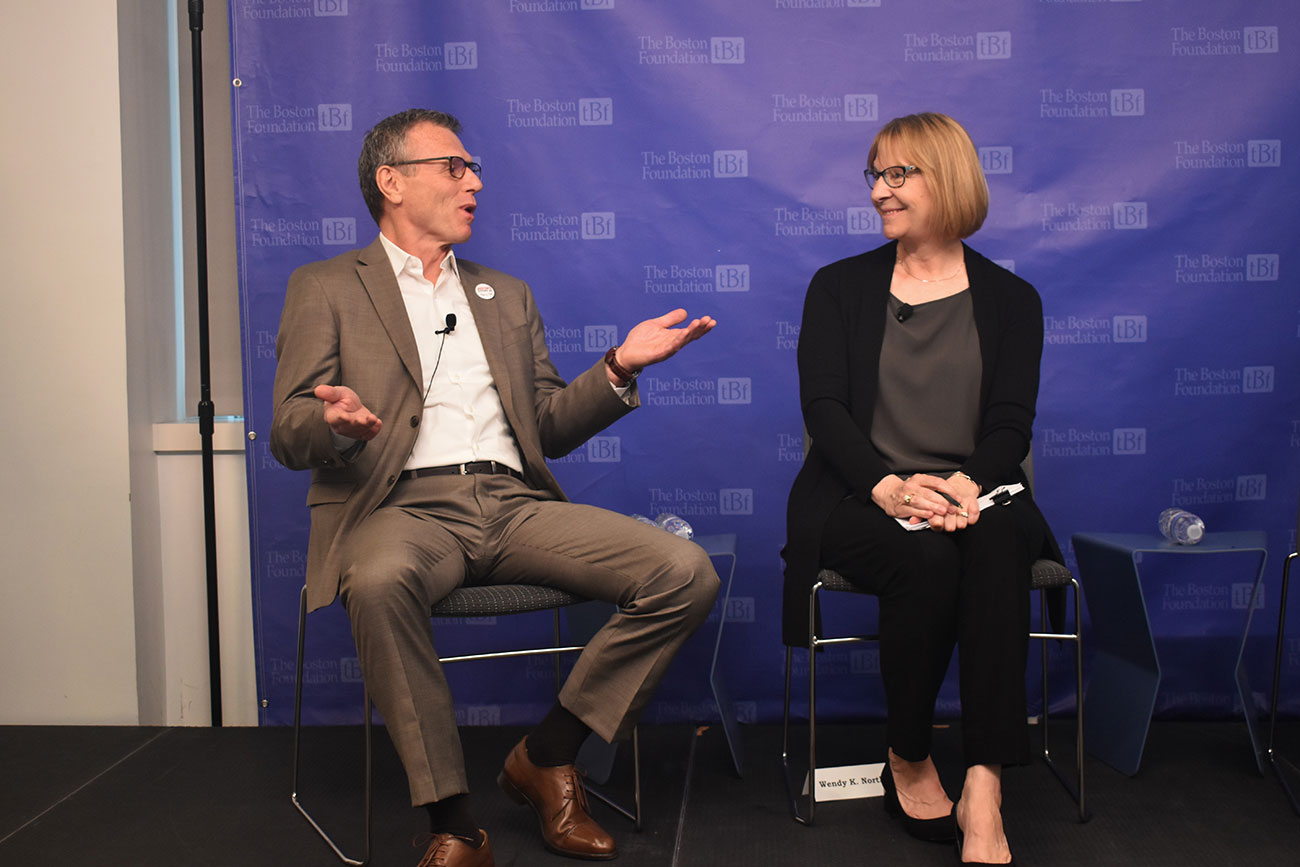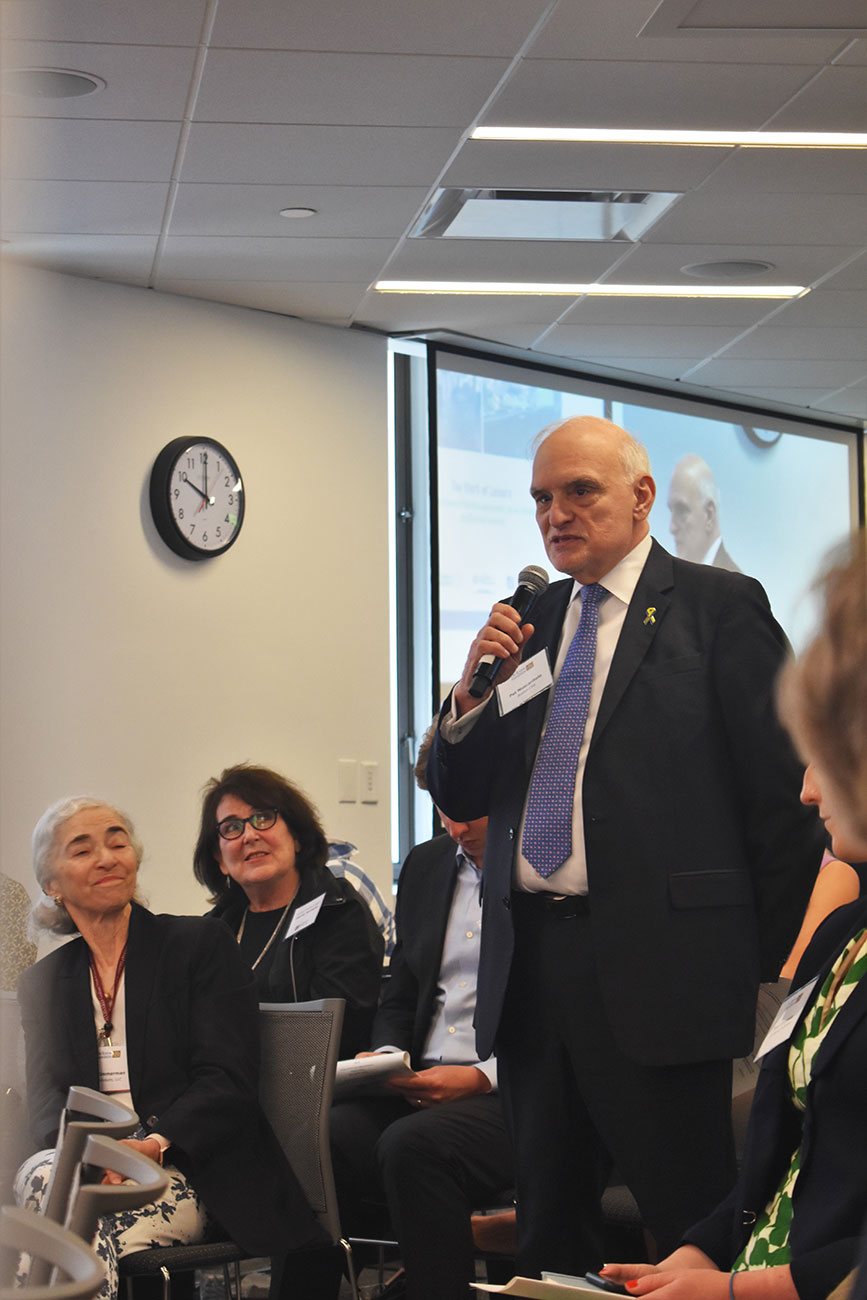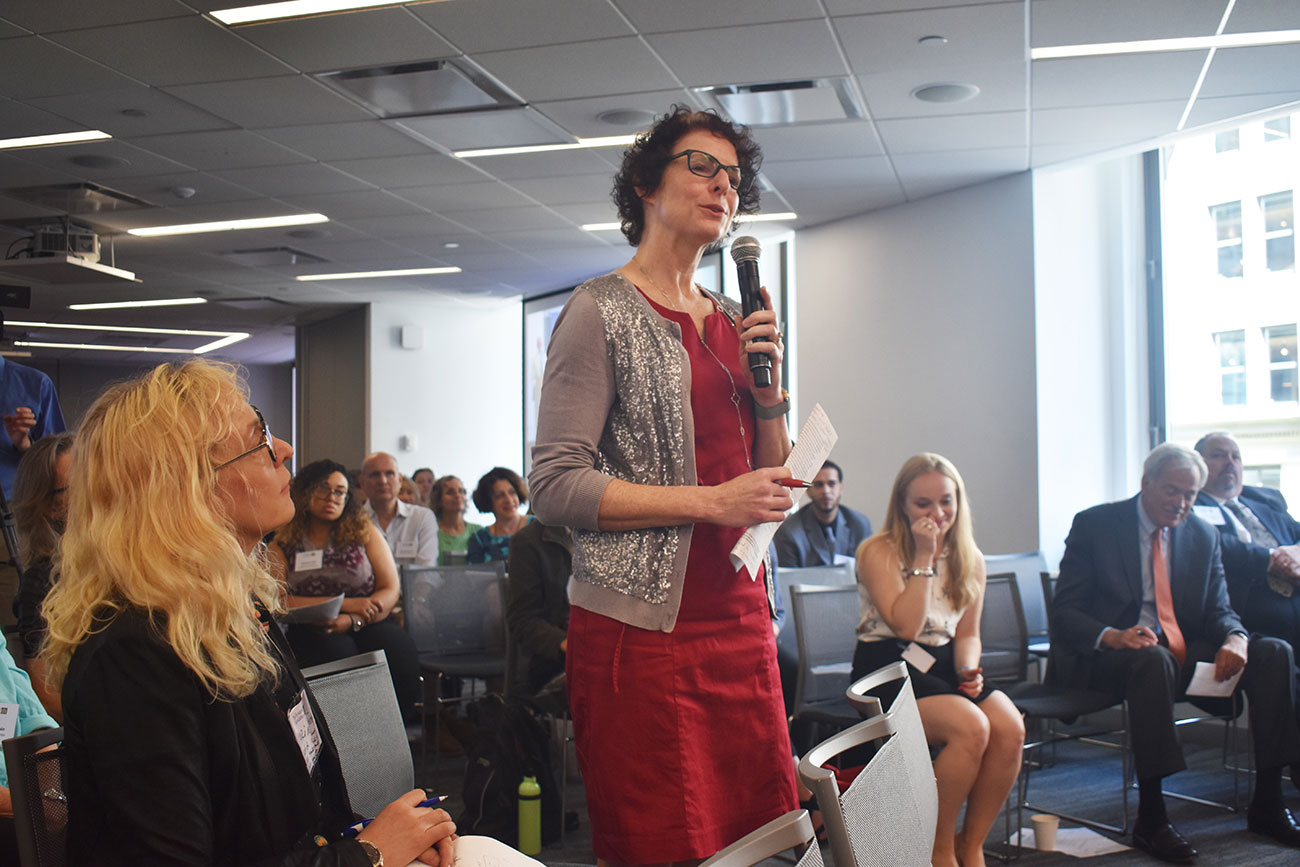The Work of Leisure
Behind the Scenes of Massachusetts' Leisure, Hospitality and Tourism Industry
At this Understanding Boston Forum the Boston Foundation released The Work of Leisure: Behind the Scenes of Massachusetts' Leisure, Hospitality and Tourism Industry, which takes the first in-depth look at the Massachusetts leisure, hospitality and tourism (LHT) industry in decades, and finds that while the sector quickly rebounded from the Great Recession, it is still plagued with low pay and high turnover. The report was compiled by a research team at the University of Massachusetts Donahue Institute, who coupled a comprehensive look at labor, salary and demographic data with a survey of more than 300 employers and business owners in the sector.
The research finds the LHT industry, the third-largest in Massachusetts, employs 376,000 workers and generates more than $28 billion in economic output on its own – and its spending and economic activity spins off another 232,000 jobs and $41 billion in additional output. The industry was one of the most resilient in the 2001 and 2008 economic downturns. Despite that, it is an industry that faces challenges, especially when it comes to finding, retaining and compensating its workforce. Despite employing roughly 10 percent of the state’s workers, the LHT industry pays out just four percent of total wages.
Those figures are driven by a combination of factors – including lower hourly wages, a large percentage of part-time workers and a workforce that is younger, less educated, and often balancing work and education. More than half of LHT workers work part time, 56 percent are under the age of 35 and more than a quarter are advancing their education as they work. Forty-five percent have a high school degree or less, and the LHT workforce is more highly Latino and foreign-born than the overall labor force. The result: a statewide median personal wage of $17,000, compared with a median personal wage of $45,000 for non-LHT workers. In all, 20% of Massachusetts workers living in poverty are working in the LHT industry.
The turnover of the workforce, combined with lower educational barriers to entry, do make the LHT industry an area of opportunity for new workers. Researchers estimate the industry will generate 6,500 new jobs annually – more than 1 in 9 new jobs created in the state. In addition, the researchers estimate an additional 59,000 jobs will open up annually as workers leave the industry and need to be replaced. Meeting those job needs and improving the pipeline of talent into the industry, the report authors note, requires a rethinking of training capacity.
This report can serve as a starting point for an overdue dialogue about policies that will allow the workers in the leisure, hospitality and tourism industry to earn a living wage while at the same time ensuring the enterprises that employ them continue to be profitable. As the report makes clear, these goals are essential to the continued economic success of Massachusetts.
The forum included a presentation of the report and a panel discussion about the implications of its findings.
Welcome
Paul S. Grogan, President & CEO, The Boston Foundation
Presentation of Report Findings
Mark Melnik, Ph.D., Director, Economic & Public Policy Research, UMass Donahue Institute
Panel Moderator
Keith Mahoney, Vice President of Communications & Public Relations, The Boston Foundation
Panel Discussion
Kim Driscoll, Mayor, City of Salem
Jill Griffin, Director of Workforce, Supplier and Diversity Development, Massachusetts Gaming Commission
Brian Lang, President, UNITE HERE Local 26
Wendy K. Northcross, Chief Executive Officer, Cape Cod Chamber of Commerce

